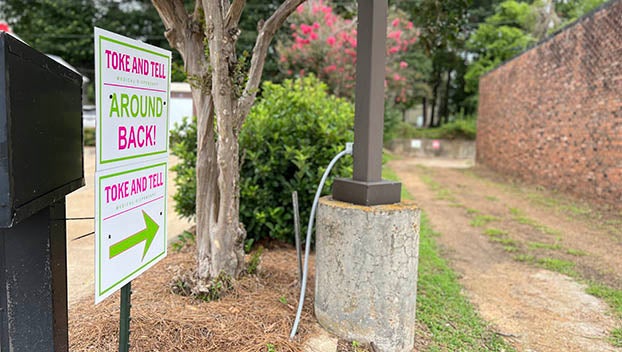Local doctors discuss use of hydroxychloroquine, other therapies for COVID-19
Published 8:47 pm Thursday, August 6, 2020
|
Getting your Trinity Audio player ready...
|
NATCHEZ — Americans who frequent social media or who watch pundit news shows have no doubt heard the battle over the antimalarial drug hydroxychloroquine.
The drug first gained national attention when President Donald Trump touted the benefits of the drug as a treatment for the COVID-19 virus. Trump said he had taken the drug, which was prescribed to him by his physician, as a precautionary measure.
However, hydroxychloroquine, like any other treatment, has not had any proven benefits for treating COVID-19 and is not approved as a treatment for COVID-19 by the Food and Drug Administration, said Dr. Geoffrey Flattmann, chief of staff at Merit Health Natchez.
No cure is known yet for COVID-19, Flattmann said, adding many probable treatments have been granted emergency use authorization by the FDA and with more time and research could obtain FDA approval.
Dr. Lee England, chairman of the Natchez COVID-19 Task Force, said the drug hydroxychloroquine doesn’t seem to help at all.
England said other doctors continue to prescribe it and think it may help control COVID-19 symptoms in the early stages.
“Any drug that is FDA approved, even though it may not be approved for treating COVID-19, may be prescribed for what we call off-label uses,” England said.
Dr. Charles Borum, a Natchez family physician, is one of those who thinks it may benefit patients in the early stages of COVID-19.
Borum said last week he had taken hydroxychloroquine and azithromycin for five days when he was first diagnosed with COVID-19 and continues to prescribe the same to many of his patients.
Borum said his symptoms were minimal and the drugs seemed to help lower the death toll when he used it to treat older patients.
“They were using it in Europe before we started dealing with the virus here and there were some reports that said it was helpful,” Borum said. “… Everything that I’ve seen encourages me to use it but you have to use it early. I think some of the studies that suggested that it is not useful and may be even harmful were in patients who were already requiring ventilator support and were in hospitals.”
However, Borum said he doesn’t swear by the drug’s ability to treat COVID-19.
Hydroxychloroquine — like most medications — does have side effects and is known to cause heart problems in some patients, Borum said.
“We’ve only been dealing with the virus since January. Two years from now we’re going to know all about treating COVID-19. We may find out that (hydroxychloroquine) does nothing to help patients or maybe even find out it’s a bad drug and we shouldn’t use it for COVID but I don’t have that perspective right now.”
Flattmann said the longer the virus has been around the more studies are released suggesting new ways to treat it.
“It’s an evolving situation. It seems like every week there is a new guideline, a new test or new product available that promises to be better than the last,” he said.
“(As for hydroxychloroquine) it’s too early in the game to know if that is the right thing to do. One of the problems with hydroxychloroquine is that it’s not a medication without side effects. There are some side effects, including cardiac arrhythmia, that can be significant and that is something that disturbs some physicians. We don’t know the efficacy of this drug with the virus.”
Flattmann said remdesivir is another drug that has been administered at the hospital that seems to have shortened the length of time patients were sick.
“It is a very promising treatment that is not FDA approved but approved under the emergency use authorization with the FDA,” he said.
Flattmann said the hospital has also utilized convalescent plasma, a new therapeutic treatment for COVID-19 with almost no side effects.
Convalescent plasma is obtained when a person who has fully recovered from the virus donates blood plasma containing antibodies to be transfused in patients who are still fighting the disease.
“Early on, our ability to use convalescent plasma was limited by the availability of the product,” Flattmann said. “Now the product is much more available.”
Flattmann said those who have had COVID-19 and are fully recovered can help by signing up to donate plasma at redcrossblood.org.






